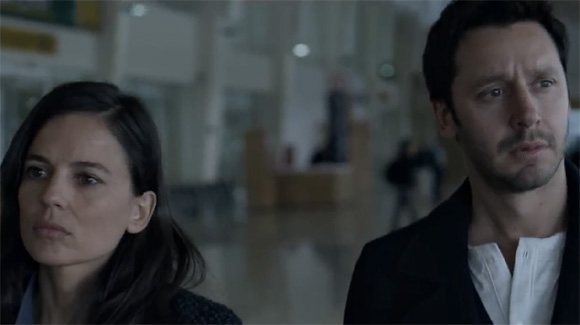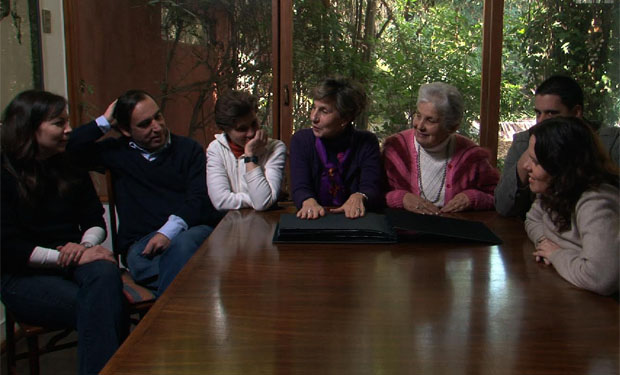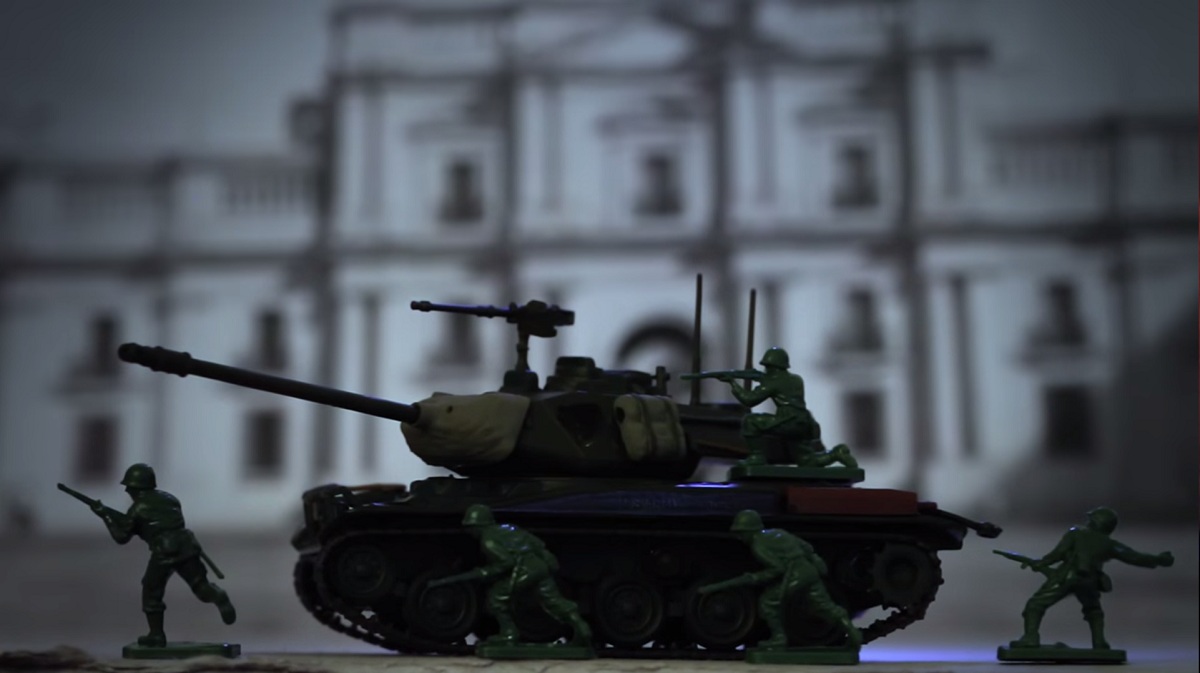
The Pearl Button (El Botón de Nácar)
Directed by Patricio Guzmán.
Premiered at the Berlinale 2015
Guzmán is not only one of the greatest Chilean directors of all time, it's probably one of the most important documentary filmmakers working today, and this continuation on the themes that he started in his Nostalgia for the Light is surprisingly moving and not only ranks as the best Chilean film of the year, but for me it's also among the top three films of the year, such is its profound message that connects the death of Chilean prisoners during the military regime of Pinochet with the death of an entire indigenous race in the 19th and 20th century.
Water moves slowly and quickly, solid and liquid, and the imagery present here just forces the viewer to contemplate the space in which one lives and understand it in how the water holds more than we can initially think. One of the most beautifully shot films of the year, its cinematography rivals the one of The Assassin as the one that brings forward the most beautiful images, which go beyond the nature documentary stasis, as they move around, find new ways of compositing with digital technology, creating new worlds that are still based on a reality told by the people interviewed. A wonder and a surprise.
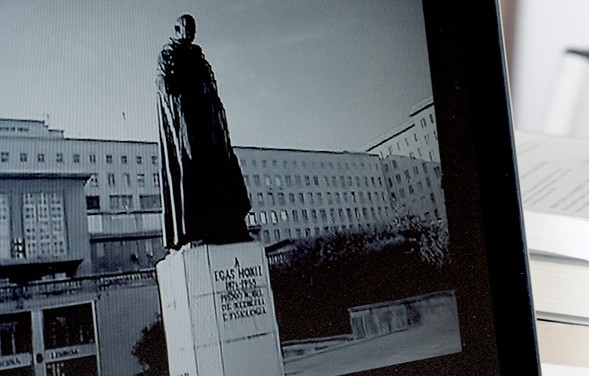
The Monument Hunter (El Rastreador de Estatuas)
Directed by Jerónimo Rodríguez.
Premiered at the Valdivia Film Festival 2015
A documentary that at times feels like a complete fabrication, an autobiography done by somebody else, a tale so complex that it can only be told not by recording the computer screen, but pointing the camera to the screen and let it play some Youtube videos. A filmmaker, who isn't the director of this film (or might be), travels from New York to Chile, trying to find information on a statue that he visited when his father the last time that they had a serious conversation, before his death.
So, the film with its calm and still style chronicles through voice over the tries and tribulations of the protagonist as he travels back and forth, trying to find some reasoning behind his search, behind the identity of the statue, and his cinema, and why he's filming everything that he lives. But, then, is anything that we see here true? Does it matter? An incredible tale of searching for the past while at the same time playing with the material aspect of the filmmaking tools.
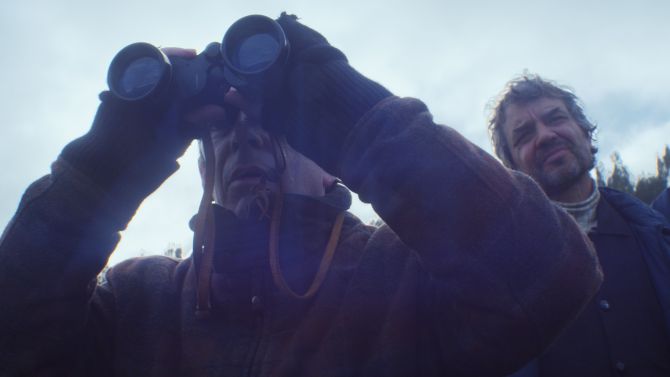
The Club (El Club)
Directed by Pablo Larraín.
Premiered at the Berlinale 2015
The first fiction film in this list (well, kinda), directed by someone who has been one of the strong voices of Chilean cinema in the recent years: Pablo Larraín, who also directed the Oscar nominated No and Post Mortem, among others, this time sets his eye towards the idea of a community formed through secrecy and crime.
A group of priests from all over the country live in the same house where they are hidden by the Church so they can escape the crimes that they commit, whether they be child abuse, dictatorship collaboration, among others that are described in detail when an investigator turns up to see if the Church decides to close these kind of places that house criminals.
Critical and at times a bit ridiculous in its portrayals of certain situations and characters, it remains mostly strong in the strong parts and stomach churning in those who want to be stomach churning. The cinematography surprises, as well as the characterization from every actor, that gives this drama the enough punch for it to become something special. It was Chile's chosen film to represent at the Oscars, but it didn't pass the first round.

Of Life and Death: Testimonials of Operation Condor (De vida y de muerte: Testimonios de la Operación Cóndor)
Directed by Pedro Cháskel.
Premiered in Chilean Theaters
A documentary about documents, but slightly more a documentary about the hardships of editing a documentary. The editor of the Battle of Chile trilogy is the director of this piece that was mostly filmed around the year 2000 and wasn't released until this year, when the director finally managed to piece together the interviews with the actual archive footage (archival records photographed and filmed).
This movie is about the material aspect of the footage as well as the crimes done by Operación Cóndor all through Latin America, being also the culprits behind the biggest terrorist attack in Washington D.C. The final interview reverses the tale and focuses on the death of a single individual, it personalizes history, it makes it alive through the words of a friend, as well as it demonizes forever this evil institution that posited for our safety but it only repressed people.
The Memory of Water (La Memoria del Agua)
Directed by Matías Bize.
Premiered in Chilean Theaters
And another fiction work to close off the top five Chilean films of the year, and it's one that's been received with a bit of a backlash. The film features two actors doing magnificent work playing a couple that broke up after the death of their child due to a pool accident.
The movie moves far and away from that moments and decides to chronicle the lives of these two characters trying to cope and to bring new elements to their lives. While the father tries hard to recover whatever relation he had with his former wife, she tries to move forward, not because she wants to, but because it's the only way she finds to appease the incredible pain she's in. With themes that go from loss, love and even to the idea of parallel universes, this one is a keeper that was widely misunderstood when it opened.
I wrote a review of it, which you can read right here.
Beyond My Grandfather Allende (Allende mi abuelo Allende)
Directed by Marcia Tambutti Allende.
Premiered at Cannes 2015
To open "the rest" of the list, in alphabetical (original title) order, this emotional documentary that isn't much a political statement as it's a film about the discovery of a history that is slowly being lost. How Allende can work as a political discourse in terms of pure imagery and ideology, and how he really was in his intimate life are both important issues that need to be maintained, and yet here we are confronted with a document that clearly shows how an aspect is being clouded by the family of Allende. This is a brave documentary that confronts consolidated sources that bring out the pain and the intimate life of one of the most important figures of the 20th century.
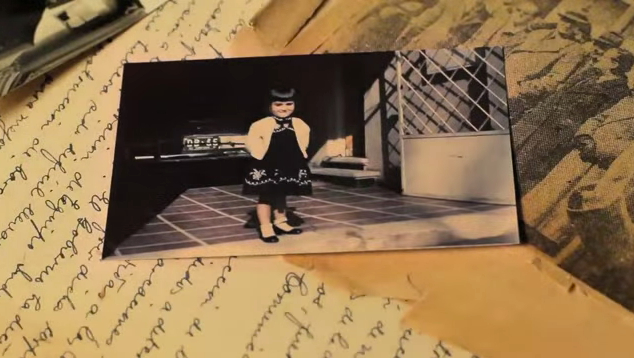
Trapped in Japan (Atrapados en Japón)
Directed by Vivienne Barry.
Premiered at the Valdivia Film Festival 2015
This is the story of how the director stumbled upon her father’s secret story in his diary: how he as a journalist in the 1940s was invited by the Japanese government, alongside other Chilean colleagues, to travel to the mythic country so they can write about the advances and the incredible country Japan is—all in the middle of World War II.
The film uses tidbits of Super8 film that was made by the journalists, as well as the text found on the travels that serves as the narration of how Barry’s father lived the events that had him and his friends circling two oceans in different ships for months and months due to the contingency of war. The documentary feels like the tale of a great adventure that never manages to be great because of how dire the conditions were, the same kind of tale that a father would tell his daughter -- a retelling that in this case never happened because of his early death. It’s a film that serves as a recovery of not only a bizarre tale that needed to be told, but also one that the director needed to tell herself.
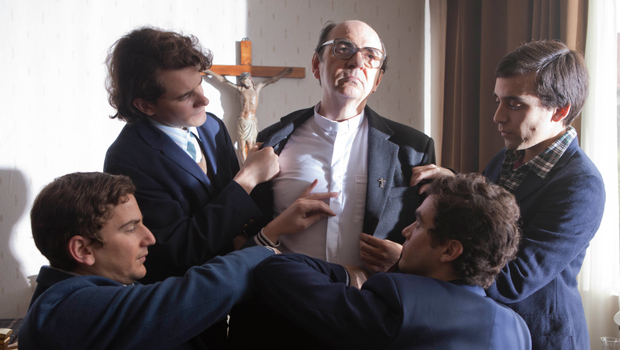
The Forest of Karadima (El Bosque de Karadima)
Directed by Matías Lira.
Premiered in Chilean Theaters
Another fiction film, this one based in a real story of abuse. Precise and delicate in its cinematography, the film presents itself without a conventional order, in the beginning as a recollection of the life of its protagonist, Thomas Leyton. A young man interested in the charismatic figure of the priest Fernando Karadima -- played in an introspective way by Luis Gnecco -- enough for him to be seduced, enough for him to be part of the community denominated “The Forest”, enough for him to feel he has the vocation of priesthood, which is finally corrupted by his close encounters with the priest, who touches and violates him in many ways.
Little by little, clearly, Leyton starts to see himself as an empty shell, he can’t do anything by himself if it doesn’t receive the approval of Karadima, who controls his youth, formation and, even older, his married life and practically every decision in his adult life. We could say that we are in front of a power relation that is overwhelming, where through the dispositions of faith and charisma, the priest can slowly get inside the private world (through confessions) and thus use guilt as a weapon in order to control those who are weaker.
The End of the Day (El Final del Día)
Directed by Peter McPhee.
Premiered at the Santiago Film Festival 2015
A small, simple yet still powerful documentary, as it was consciously constructed for it to become more than meets the eye. In Quillagua, a stranded and lost town in the north of Chile, the people prepare for what they all hear is going to be the end of the world the 21st of December, 2012. Being both a condemnation to the power of the press on people that don't know how to differentiate hoaxes from reality, the stories of the people and how they've been affected by the mining companies that surround them, as well as how it all works as a big metaphor on the destruction of the people through the careless industries, the lack of education and an overall system that doesn't seem to work anymore.
Habeas Corpus
Directed by Claudia Barril and Sebastián Moreno.
Premiered in Chilean Theaters
This is an "issue documentary" using "talking heads", but if there was one documentary that needs this style and uses it extremely well for what it ends up being, is this one. A well-documented film about the 'Vicaría de la Solidaridad', a Church institution that during the Chilean dictatorship helped people locate and compile information about who went missing and where people went after they were detained by the military. A compelling look to what seems still to be one of the most impressive and secret political crusades of that time.

















